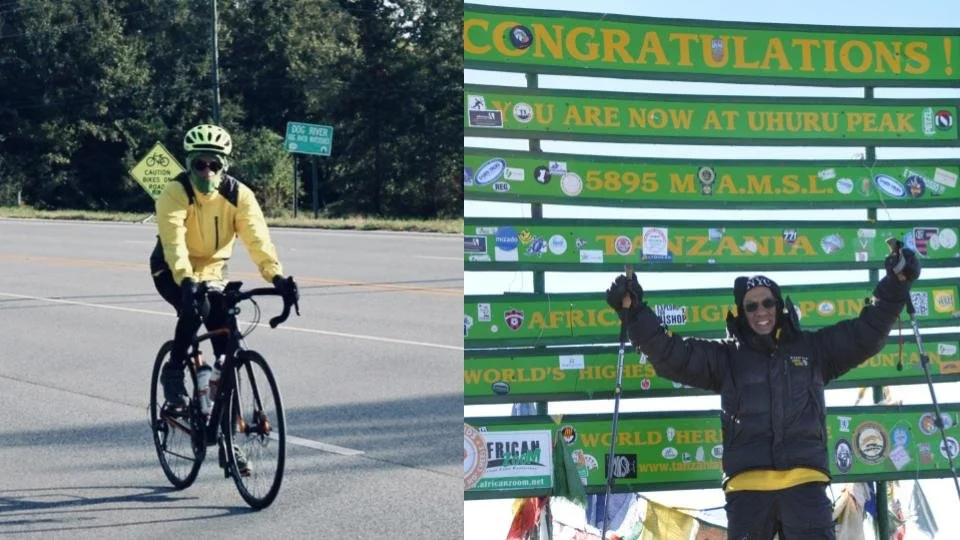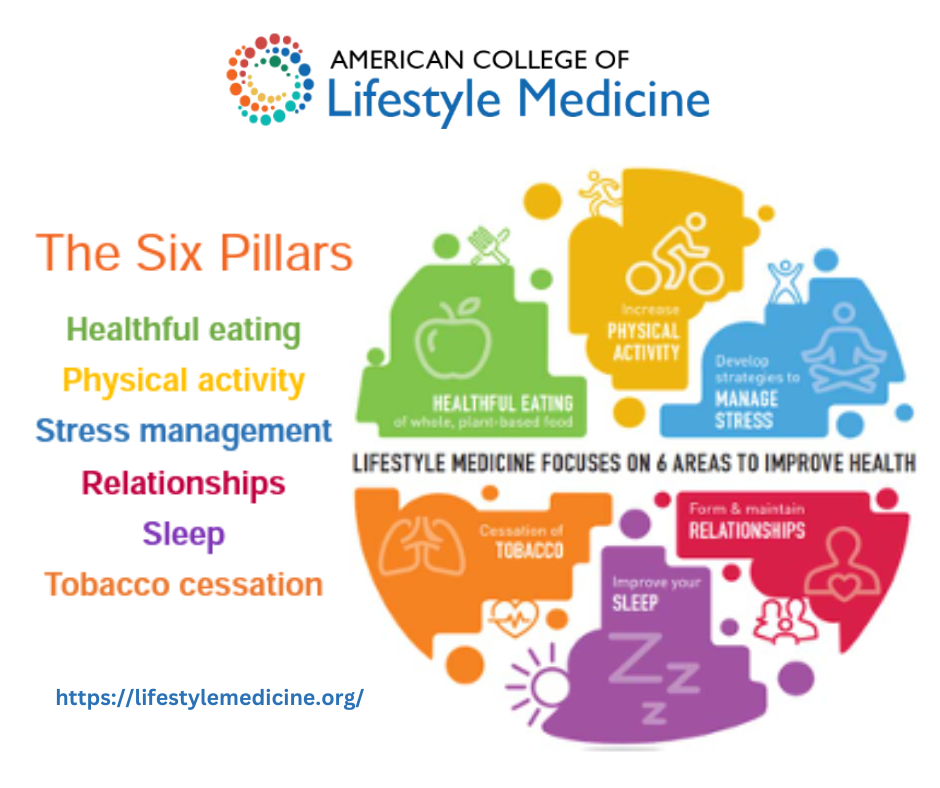Six Pillars of Medicine: From a Heart Patient's Perspective
Why is it that the human lifespan has increased dramatically but our “health span” has decreased substantially... so much so that the last twenty years of our lives are often miserable?
I am a 74-year-old athlete, doctor, and heart disease survivor whose life became so challenging that at one point, I thought I’d end it all.
Over the last twelve years, I have completed multiple half- and full-marathons and triathlons, and I am also a century cyclist. I have gone skydiving, hang gliding, scuba diving, bungee jumping, and white water rafting. I have scaled Mt. Kailash in Tibet and Mt. Kilimanjaro in Tanzania.
So, how did I go from coronary heart disease at age 56—including failed stents, cardiac arrest, and open heart surgery at age 61—to climbing the highest freestanding mountain in the world at age 62?
An old Hindi song comes to mind. “Zindagi kaisi hain paheli haaye, kabhi to hansaaye, kabhi yeh rulaaye...” Translated as, “Life is such a riddle, sometimes it makes us laugh, and sometimes it makes us cry.” An apt analogy, indeed, I think.
I moved to the United States in my mid-40s, and I believed that I had a lot of “catching up” to do. A physician keeps long hours, and I did whatever I could to keep going. Doctors are notorious for their unhealthy lifestyle and behaviors, and I was no exception. I ate whatever I wanted, without a thought about how food would impact my health. When I wasn’t working or eating, I lounged on the couch for hours.
No surprise that heart disease showed up in my mid-fifties. Reports showed that I had over 98% blockage in two arteries. The plaque was so thick that the surgeons had to use a diamond head drill to shave it off. Midway through the process I suffered a cardiac arrest, and the doctors had to administer electric shock to get my heart beating again.
After the surgery, I came home, terrified. For the first time in my life, I felt that I had no control over anything, and I reacted defensively. I thought, I am a physician, I know all of this. I can handle it on my own. Until I was hit by depression. Not everyone knows this but oftentimes an intense health event may be followed by periods of extreme loneliness, isolation, dejection.
My health stabilized but I felt sad and lonely inside. I spent hours staring vacantly into the distance. I suffered from nightmares and night sweats, so my sleep was shot, and I developed chronic fatigue. I was mentally and emotionally stressed, and this resulted in a series of health problems. I developed severe diverticulitis and had to be admitted in the hospital twice with colon perforations. The surgeon, a friend, confessed, “Akil, if I don’t operate on you right now, you may not survive.”
Five years passed, and I found myself back in the hospital. My stents had failed, and open heart surgery was the only option. My spirits were low going into surgery but I couldn’t resist quipping to the nurses, “If all goes well, I’m going to run a half marathon within a year of this surgery.” Till date, I don’t know what prompted me to say what I did. Perhaps I had a subconscious realization that I had two choices. Either I could continue this painfully slow, miserable life journey filled with a sense of anger and grief, or I could opt to live an all-new life.
Post-surgery, I recovered remarkably well. On day 3 after my surgery, I was on a treadmill! Yes, there was intense physical pain as I recovered from surgery but I felt a lot happier than I had in previous years. There was a sense of clarity within, and I knew for a fact that I wanted to live my life fully and joyfully, in every sense possible. And I knew that some big, dramatic changes were in order.
I had to ditch the general prescription that is given to most older heart patients. I had to keep the promise I gave the ICU nurses. It was time to train for my first half-marathon.
I started walking regularly. That turned into a daily jog, then running. To me, running was an experience of meditation in motion. Eight months after my heart surgery, I ran my first half-marathon in Nashville, TN. It took four grueling hours but my heart didn’t fail me. It carried me across the finish line.
The Nashville half-marathon was an exhilarating experience, and I wanted more. So I got to work. I began researching how the body can be healed without solely resorting to medication or invasive surgery. I read books on lifestyle medicine written by experts, researchers, and medical doctors, and I realized that THIS was the magic pill.
I began focusing on what I now call the six pillars of lifestyle medicine: nutrition, exercise, sleep, stress management, social support, and avoidance of risky substances. My mental, physical, and emotional health improved tremendously. I felt alive, happy, joyful. I had a strong sense of purpose and passion.
Today I am certain that we can make small daily choices that can have a hugely positive impact on our health. I am living proof of this. My patient, Winston, is another example. In his mid-50s, he was diagnosed with blocked arteries. He went on walks daily and yet he suffered from obesity, high blood pressure, and cholesterol. He was advised to have bypass surgery. I recommended a lifestyle change to him, and he implemented it. In one year, his cholesterol level reduced, blood pressure normalized, and medical tests revealed that there was no indication of blocked arteries.
It’s been four years now, and he hasn’t needed either stents or any surgery.
If you follow the six pillars of lifestyle medicine, your life WILL change. Even if you feel FINE today, your life will change. Even if you are in chronic pain right now, your life will change. Now, I am not going to get into all 6 of them today as I could obviously talk about this for a while.
But I am going to share the ONE, most impactful pillar, that you can not only start doing today but it's also the one will have the biggest impact the fastest.
What I came to realize is this: What you eat is even more important than exercise. Let me say that again… What you eat is MORE important than exercise. And so, here it is… the one, most impactful thing you can start doing today is… to eat plant-based foods.





